Early Childhood: Exploring the Milestones of Cognitive, Physical, and Social Development
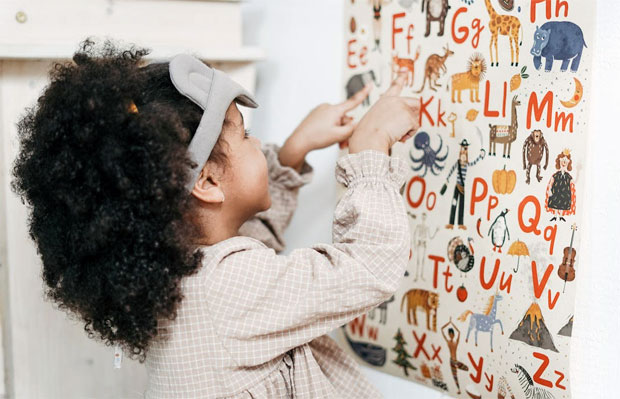
Early Childhood: Exploring the Milestones of Cognitive, Physical, and Social Development
The early years of a child’s life are full of excitement, growth, and transformative milestones. As parents, we bear witness to the awe-inspiring journey of our little ones from being completely dependent newborns to independent, curious toddlers ready to explore the world. The developmental journey encapsulates three primary domains – cognitive, physical, and social. Let’s delve into this captivating voyage and the significant milestones in each domain.
- The Wonders of Cognitive Development
Cognitive development refers to the changes in how children think, learn, remember, and solve problems. This process is marked by fascinating milestones that signify the growth of a child’s intellectual abilities.
From birth to about 6 months, babies primarily engage in exploration, learning about the world through their senses. They recognise familiar faces, respond to voices, and start exploring their hands and feet.
As they approach their first birthday, children begin to understand cause and effect relationships, use trial-and-error to solve problems, and show preferences for certain toys or games. It’s also the period where they start developing a sense of object permanence, understanding that objects continue to exist even when out of sight.
By the age of 2, toddlers can identify shapes and colours, follow simple instructions, and engage in imaginative play. By 3 years old, children are solving simple puzzles, understanding basic time concepts like ‘night’ and ‘day’, and starting to count.
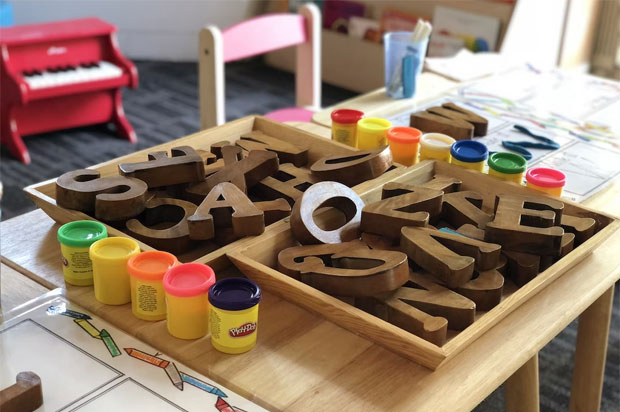
- The Journey of Physical Development
Physical development encompasses the growth of gross and fine motor skills, which involve larger and smaller muscle groups, respectively.
In the first few months, babies develop the ability to lift their heads, roll over, and grasp objects. By their first birthday, most babies can sit without support, crawl, and may be taking their first steps.
During the toddler years, physical development takes a big leap. Children start walking unaided, climbing stairs, and developing a pincer grasp, which involves using the thumb and forefinger to pick up small objects. By the age of 3, most children can run, jump, and pedal a tricycle.
- The Intricacies of Social Development
Social development involves learning the values, knowledge, and skills to effectively relate to others. It’s about understanding and playing different roles in society.
Babies initially express their social needs through crying, cooing, or smiling. By six months, they begin to recognise familiar people and may feel anxious around strangers.
As they become toddlers, children learn to express a range of emotions, develop a sense of self, and start playing simple games with others. By 3 years old, children can take turns in games, express their feelings verbally, and start showing empathy towards others.
It’s worth noting the importance of social development when a child starts attending nursery school too. Interacting with peers of the same or similar age is something that can help a lot with social development.
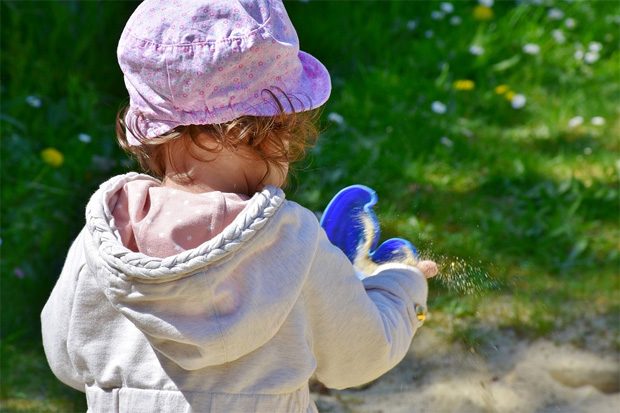
- Guiding Your Child Through These Milestones
While each child develops at their own pace, there are ways parents can foster their development. Providing a stimulating environment, engaging in interactive play, reading together, encouraging physical activities, and teaching them to express their emotions are some effective strategies.
Remember to celebrate each milestone, however small it may seem. Every new word, every puzzle solved, every successful attempt to catch a ball signifies progress in your child’s developmental journey.
It’s also crucial to understand that children may reach these milestones at different times, and that’s perfectly fine. Development is not a race but a unique journey for every child. If you notice any significant delays in reaching these milestones, seek advice from a paediatrician or an early childhood professional.
- The Adventure of Early Childhood Development
The journey of early childhood development, with all its highs and lows, is an exciting adventure. As parents, you’re your child’s first teacher and most important guide. With your patience, encouragement, and unconditional love, you can set the foundation for your child’s holistic development. Always remember, the goal is not to rush the process but to cherish these fleeting moments and to support your child as they unfold the world around them in their unique way.
- Establishing a Healthy Routine
Routines play a significant role in a child’s development. A regular schedule for mealtimes, playtimes, and bedtime can help instil a sense of stability and predictability. This routine aids not just their physical health but also their emotional well-being.
Moreover, routines can be educational. A bedtime story can enhance language skills, brushing teeth promotes personal hygiene, and having meals together can teach social skills. Remember, these early routines set the stage for their lifelong habits.
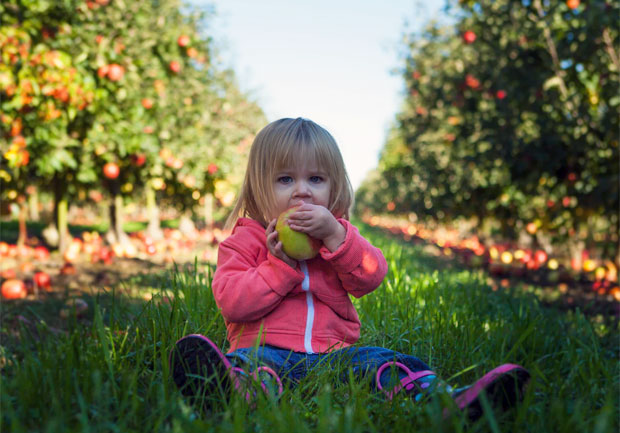
- Nourishing the Body and the Mind
Nutrition is a critical component of physical development. A balanced diet provides the necessary fuel for growth and energy. But it’s not just about the physical aspect. The nutrients derived from food also contribute to cognitive development.
Omega-3 fatty acids, for instance, are vital for brain health, and iron is necessary for cognitive functioning. Ensure your child’s diet includes fruits, vegetables, whole grains, protein-rich foods, and plenty of water. As you nourish their bodies, don’t forget to feed their minds. Encourage curiosity, creativity, and a love for learning.
- Importance of Play in Development
Playtime is not just about fun. It’s an integral part of a child’s development. Through play, children develop social skills, cognitive abilities, and physical dexterity. They learn about the world, understand social roles, solve problems, and foster creativity.
Whether it’s solitary play, parallel play alongside other children, or cooperative play involving interaction with others, each play type offers unique learning opportunities. As parents, you can support your child by providing a safe environment for free play, participating in their play, and providing diverse play materials.
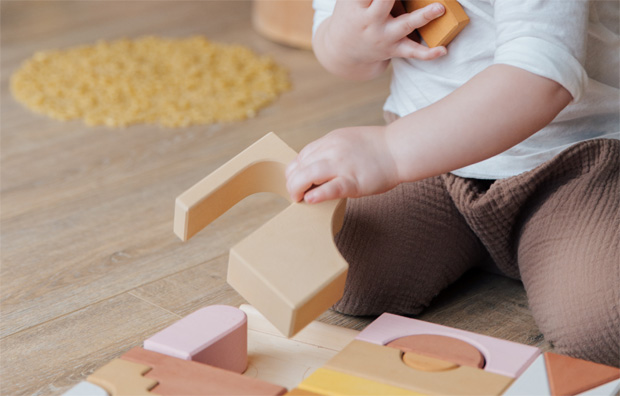
- Screen Time and Children
In this digital age, screen time is a concern for many parents. While technology can be educational, excessive screen time can lead to sedentary behaviour and affect physical health. It’s essential to establish healthy screen time habits early on.
Experts recommend limiting screen time for toddlers and ensuring that the content is age-appropriate and educational. It’s also vital to engage with your child during screen time, making it interactive and learning-oriented.
- Navigating Challenges in Early Development
Despite all the joy and excitement, early development comes with its challenges. These could range from tantrums and picky eating to separation anxiety and toilet training struggles.
As parents, patience, understanding, and consistency are your strongest tools. It’s essential to acknowledge your child’s feelings, guide them through their emotions, and encourage positive behaviour. Also, remember, it’s okay to seek professional help when needed. Child psychologists, paediatricians, and early education professionals can offer valuable guidance and support.
Conclusions
The early years of a child’s life are a blend of endless curiosity, milestones, growth, and learning opportunities. It’s a time when the foundations of their cognitive, physical, and social skills are laid. As parents and caregivers, we have the privilege of shaping their developmental journey, supporting them at every step, and cherishing the countless unforgettable moments that these years bring. Amid all the joys and challenges, remember that each child is unique, and so is their developmental journey.
Guest Article.




